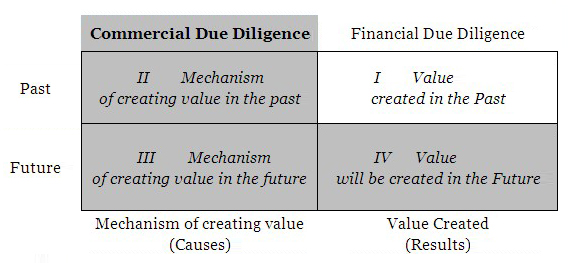Market News
Commercial Due Diligence in M&A transactions
Published:2014-04-17 Source:HICG
Due Diligence (DD) refers to a comprehensive and detailed research upon the operation status of a target company in an investment/acquisition which helps the investor to assess the value and risks for the deal.
There are several kinds of Due Diligence, listed as follows:
· Commercial Due Diligence for assessing the Prospect of a Business and Operational Risks
· Financial Due Diligence for assessing the Actual Assets and Liabilities
· Taxation Due Diligence for assessing the Taxation Risks
· Legal Due Diligence for assessing the Legal Risks and Litigations
· Human Resource Due Diligence for assessing the Initiatives of the Management and other Employees
· Environment Due Diligence for assessing the Pollution Conditions
· Real Estate Due Diligence for assessing the value of the premises and buildings
· And so on
Conducting a Commercial Due Diligence (CDD) is to confirm the Business Prospect of the target company. CDD reveals the market position and development tendency of a target company by analyzing the Macro Conditions, Market Status and Competition Landscape. Through the analysis of operation and management, CDD sets the primary mentalities for Post-Merger-Integration solutions and Goals of Synergies.



